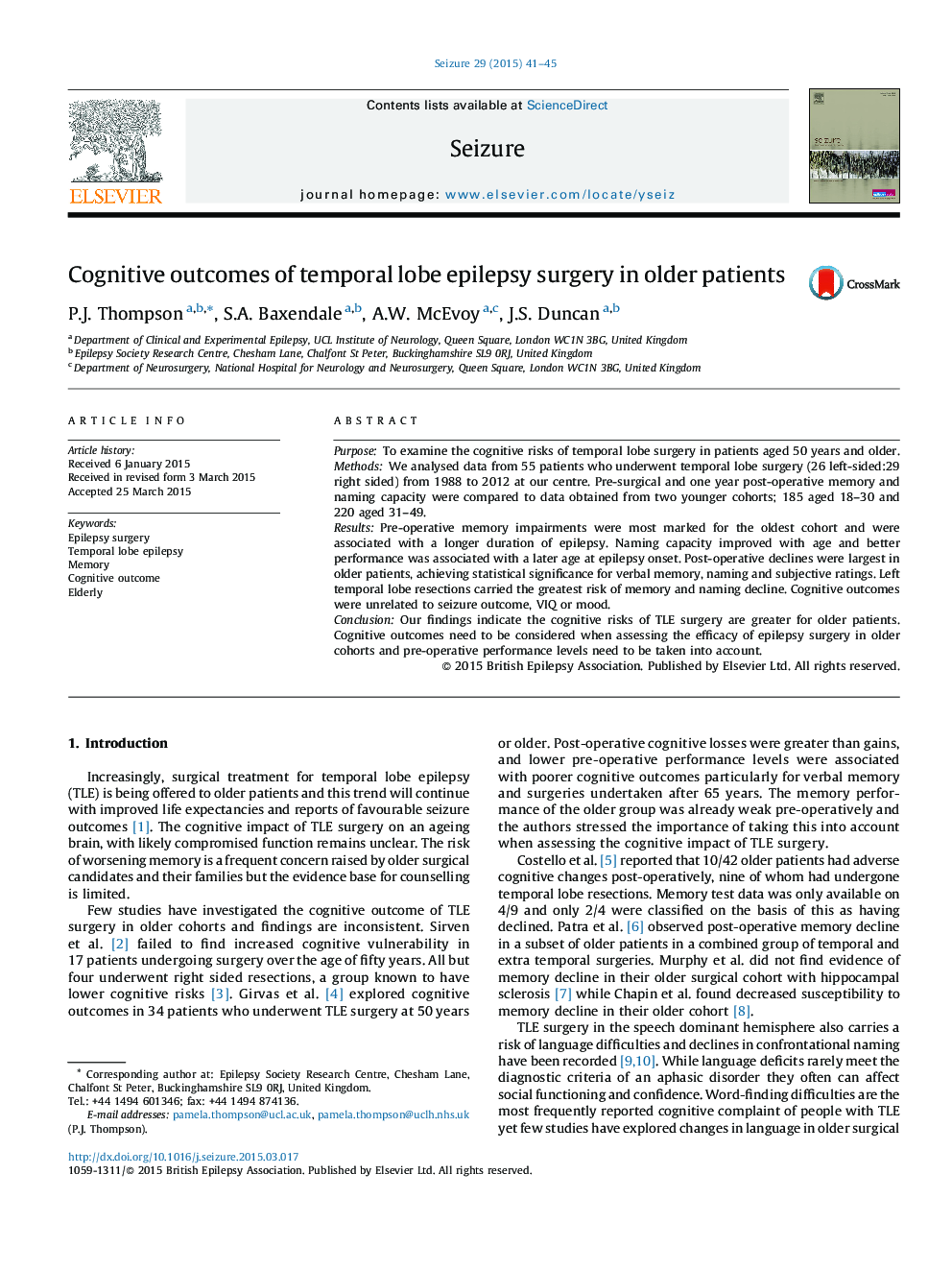| Article ID | Journal | Published Year | Pages | File Type |
|---|---|---|---|---|
| 342341 | Seizure | 2015 | 5 Pages |
•Older surgical candidates with temporal lobe epilepsy have poor memories before surgery.•Post-operative verbal memory and naming declines recorded were greater in older than younger patients.•Left sided surgery carried the greatest risk of post-operative cognitive decline.
PurposeTo examine the cognitive risks of temporal lobe surgery in patients aged 50 years and older.MethodsWe analysed data from 55 patients who underwent temporal lobe surgery (26 left-sided:29 right sided) from 1988 to 2012 at our centre. Pre-surgical and one year post-operative memory and naming capacity were compared to data obtained from two younger cohorts; 185 aged 18–30 and 220 aged 31–49.ResultsPre-operative memory impairments were most marked for the oldest cohort and were associated with a longer duration of epilepsy. Naming capacity improved with age and better performance was associated with a later age at epilepsy onset. Post-operative declines were largest in older patients, achieving statistical significance for verbal memory, naming and subjective ratings. Left temporal lobe resections carried the greatest risk of memory and naming decline. Cognitive outcomes were unrelated to seizure outcome, VIQ or mood.ConclusionOur findings indicate the cognitive risks of TLE surgery are greater for older patients. Cognitive outcomes need to be considered when assessing the efficacy of epilepsy surgery in older cohorts and pre-operative performance levels need to be taken into account.
